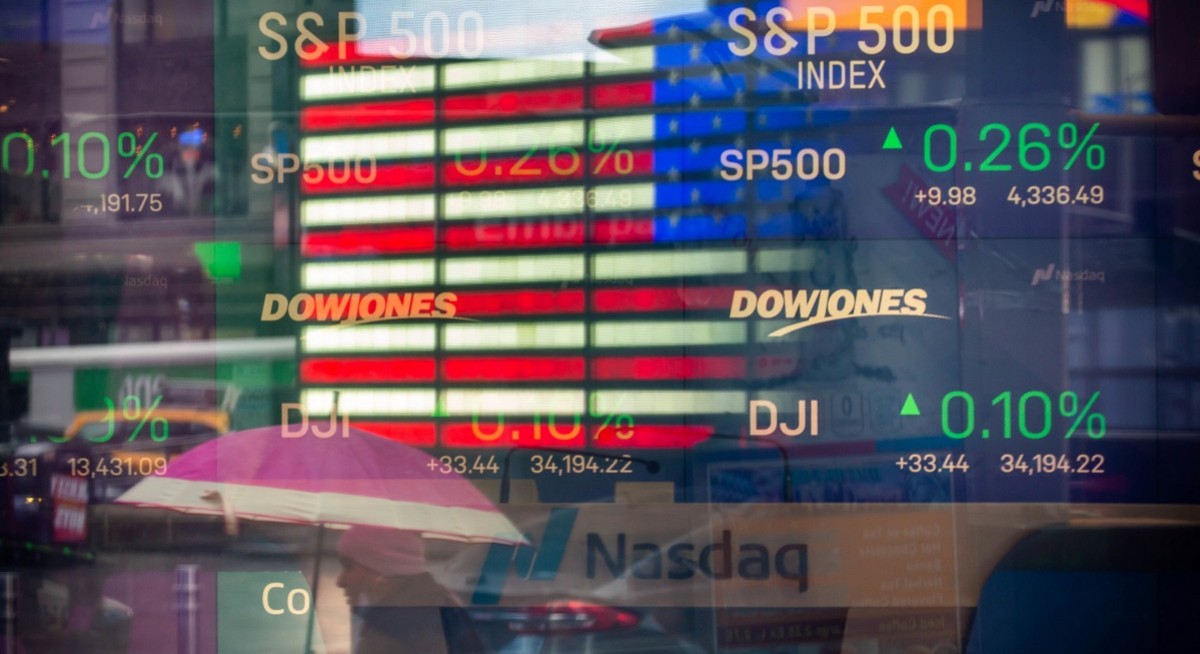The reversal for some of 2021’s hottest stocks makes tech one of the worst-hit sectors in the S&P 500. Geopolitical tensions and supply chain hurdles have added to concerns over rising interest rates and surging bond yields – which can hurt the present value of future profits.
“The pandemic winners now have to face a situation where all Covid-related tailwinds have disappeared and the current situation facing them is of economies suffering from huge inflation which is curbing individual purchasing power and putting pressure on discretionary spending going forward,” said Jim Dixon, a senior equity sales trader at Mirabaud Securities.
Some of that rout has turned around. Those who initially fled the sector have started to come back, enticed by discounts and the belief that some marquee names can continue to churn out bigger profits. Still, the Nasdaq 100, down 7.7%, is on pace for its first quarterly decline since the pandemic-driven selloff in March 2020 after falling into bear-market territory this month.
See also: OpenAI gives Pentagon AI model access after Anthropic dust-up
Here’s a look at some of the quarter’s standout moves:
1. Pandemic Boom to Bust
Companies that thrived during Covid lockdowns have plummeted as demand for their services wane now that consumers are venturing out again. Home-fitness equipment maker Peloton Interactive Inc has slumped 25% and electronic signature solutions provider DocuSign Inc is down 29%, while e-commerce company Etsy and online payments firm PayPal have declined 40% and 37% respectively. Investors will be looking at first-quarter results to see if the companies can revive their growth in the post-pandemic era.
See also: US bars Anthropic products from agencies, contractors for rejecting US military offer
2. Social Media Slump
Pinterest Inc and Snap Inc have led declines in social media stocks hurt by Apple’s privacy updates, making it challenging for them to effectively track consumer habits for target advertising. They have each slumped more than 20% this year. Facebook parent Meta Platforms Inc, which draws almost all its revenue from ad sales, has tumbled 33%. The Global X Social Media ETF, which includes Tencent Holdings Ltd. and Alphabet Inc., is down about 20%.
3. China’s Wild Ride
An uncertain regulatory environment in both the US and China have sparked a wild ride in Chinese stocks listed in the US. The Nasdaq Golden Dragon China Index has lost 20% this quarter amid Beijing’s ongoing corporate crackdown and as the US Securities and Exchange Commission lists more companies that may get kicked off American stock exchanges for violating an audit law. Alibaba Group Holding has slid 5% this year and Baidu Inc. dropped 9%, while JD.com Inc and Pinduoduo Inc slumped 17% and 29% each.
4. Faangs Diverge
The most high-profile set of companies that have typically led the charge for tech stocks have been split in their recovery. While Amazon and Apple have eked out some gains in March, Netflix and Meta have been decimated this quarter, losing more than US$400 billion in market value combined due to their uncertain growth outlooks. The NYSE FANG+ Index is down almost 10% this year.
5. Cybersecurity Boom
Russia’s invasion of Ukraine has further fueled a rally in one group of pandemic winners: cybersecurity firms. Stocks like Crowdstrike Holdings Inc and Palo Alto Networks Inc have posted double-digit gains this year, far outpacing the Nasdaq 100, as investors bet on increased spending on digital defenses. This comes after a two pandemic-led strong years as investors flocked into these firms on bets companies would spend more on beefing up their online security.
A strong rebound by US tech stocks over the last two weeks has driven one measure of market breadth to its highest in nearly a year. The Nasdaq 100 Index has seen its share of members that are trading above their 50-day moving average surge to 78%, the most since April 2021. It’s a rapid change of fortune for the gauge, which saw that figure plunge to two-year low of about 12% just over a month ago.



